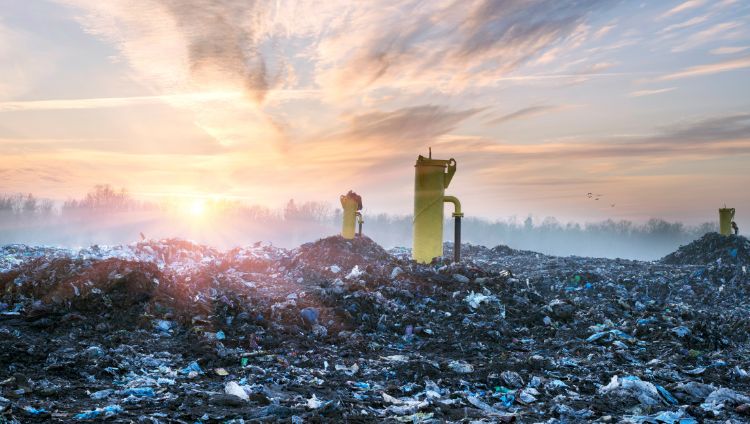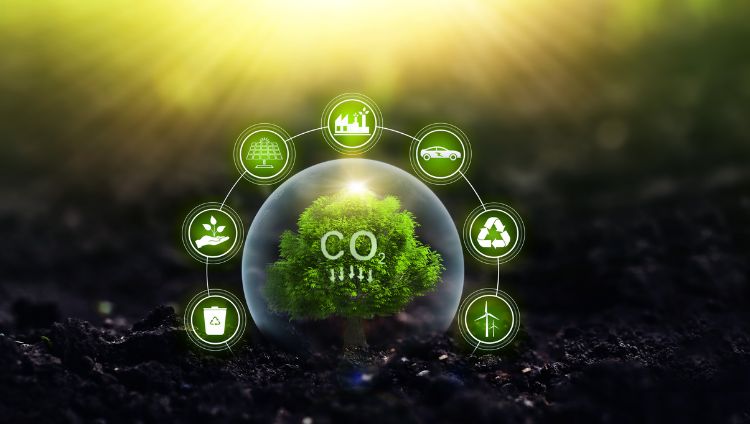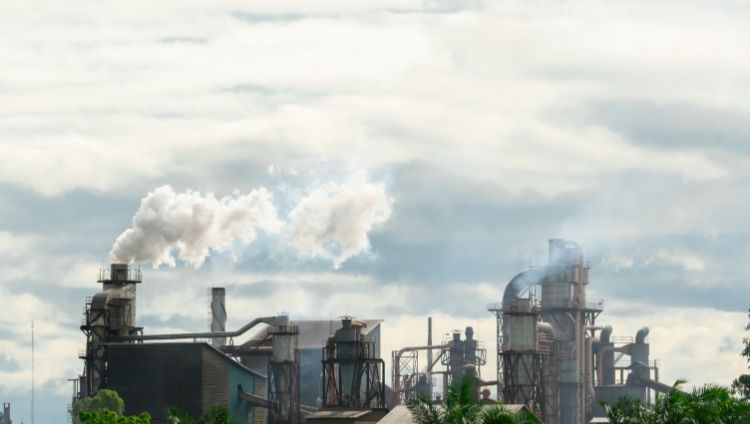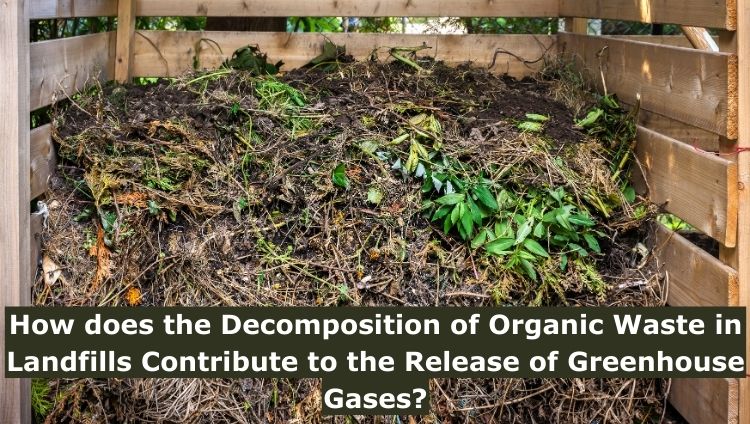Landfills are an integral part of modern waste management systems, serving as the final destination for a substantial portion of the world’s municipal solid waste. One significant but often overlooked consequence of landfill operations is the release of greenhouse gases into the atmosphere.
While landfills are designed to contain and manage waste, the decomposition of organic materials within them leads to the production of potent greenhouse gases, contributing to climate change.
In this article, we will delve into the processes and mechanisms about How does the decomposition of organic waste in landfills contribute to the release of greenhouse gases?
Decomposition in Landfills
Landfills generally consist of two main categories of waste: biodegradable materials, including food scraps and yard waste, and non-biodegradable materials like plastics. In the deeper layers of the landfill, where oxygen is limited due to compaction and covering, biodegradable waste decomposes anaerobically. Learn more about waste diversion techniques to reduce the environmental burden of landfills.
Methane Production
In environments without oxygen, the breakdown of organic matter generates methane (CH4), a potent greenhouse gas with a global warming potential much greater than that of carbon dioxide (CO2). This decomposition occurs in several stages:
- Hydrolysis: Complex organic molecules are enzymatically converted into simpler compounds.
- Acidogenesis: Intermediate products, including organic acids and volatile fatty acids, are produced.
- Acetogenesis: Acetogenic bacteria further process these intermediates into acetic acid, hydrogen, and carbon dioxide.
- Methanogenesis: Methanogenic bacteria then convert these substances into methane and additional carbon dioxide.
Methane production in landfills is particularly concerning due to its superior ability to trap heat compared to CO2 and its long-term presence in the atmosphere. Discover how waste management contributes to climate change and the role of methane emissions.

Carbon Dioxide Emissions
When organic waste decomposes, it not only releases methane but also emits carbon dioxide (CO2). This CO2 is produced during various stages of decomposition, such as when organic acids and volatile fatty acids break down.
While CO2 isn’t as potent as methane in terms of warming the planet, it still significantly contributes to the greenhouse gases emitted by landfills.

Ways to Mitigate Greenhouse Gas Emissions from Landfills
1. Landfill Gas Capture: One effective strategy is the collection and controlled venting of landfill gas (LFG). This involves installing gas collection systems, which capture methane and CO2 emissions, and converting them into energy, reducing the release of these gases into the atmosphere.
2. Waste Diversion: Diverting organic waste from landfills by promoting composting and anaerobic digestion can substantially reduce methane emissions. These processes provide controlled environments for organic decomposition, generating less methane and CO2.
3. Improved Landfill Management: Modern landfills are designed to reduce the release of greenhouse gases. Techniques such as engineered landfill covers, leachate recirculation, and enhanced waste compaction help limit gas production.
4. Regulations and Policies: Governments can implement regulations and policies to encourage waste reduction, recycling, and diversion, which can significantly reduce the organic waste disposed of in landfills.
Find out how to reduce waste with recycling and minimize emissions.

Frequently Asked Questions
What is Organic Waste, and Why Is It a Concern in Landfills?
Organic waste is stuff that can break down naturally, like food scraps and yard waste. We worry about it in landfills because when it breaks down there, it makes greenhouse gases, especially methane and carbon dioxide.
How Does Organic Waste Break Down in Landfills and Make Greenhouse Gases?
Organic waste breaks down in landfills without much air (we call it “anaerobic” conditions), and this creates methane and carbon dioxide. These gases are made during the breakdown process and then go into the air.
Why Is Methane a Big Concern Among Greenhouse Gases from Landfills?
Methane is a big worry because it’s way better at trapping heat in the air compared to carbon dioxide. It can trap heat about 25 times more effectively over 100 years.
What Happens to the Carbon Dioxide Made in Landfill Decomposition?
When organic waste breaks down in landfills, it also makes carbon dioxide. While it’s not as strong as methane in trapping heat, it’s still important because it adds to greenhouse gas emissions and sticks around in the air for a long time.
Can We Control or Reduce Greenhouse Gas Emissions from Landfills?
Yes, there are ways to make things better. We can capture the gases (methane and carbon dioxide) from landfills, encourage recycling and waste diversion, improve how we run landfills, and make rules to stop so much organic waste from going to landfills.
How Does Landfill Gas Capture Work?
To capture landfill gas, we set up special systems in landfills. These systems collect the methane and carbon dioxide and turn them into energy.
This not only stops the gases from getting into the air but also gives us useful energy.
What Are Some Ways to Reduce Greenhouse Gas Emissions from Landfills Through Waste Diversion?
Waste diversion includes things like composting and anaerobic digestion, which give us controlled places for organic waste to break down.
In these places, we get fewer methane and carbon dioxide emissions, which is good for the environment.
Are there any health problems when organic waste breaks down in landfills?
Yes, there can be health issues because when waste breaks down, it makes gases like methane and other pollutants that can affect the air we breathe.
This can cause breathing problems and other health troubles, especially for people living close to landfills.
How long do these greenhouse gases stay in the air after leaving landfills?
Methane can stay in the air for about 12 years, while carbon dioxide can linger for a very long time, even hundreds of years. This means these gases can impact the climate for a long time.
What happens to what’s left in landfills after organic waste breaks down?
After organic waste breaks down, what’s left is usually solid waste. This solid waste might need ongoing care, like regular checks to make sure it doesn’t harm the environment.
Is capturing gases from landfills good for saving money?
Yes, it can save money because capturing methane from landfills can create energy, which can lower energy bills and even make money by selling extra energy to the power grid.
How can regular people help reduce organic waste in landfills?
People can help by composting at home, recycling, and being careful not to waste food. Also, supporting local composting and recycling programs and joining efforts to create less waste can make a big difference.
Conclusion:
In conclusion When organic waste in landfills breaks down, it releases gases like methane and carbon dioxide, which can harm the environment and our health.
To deal with this, we need to use methods like capturing landfill gases, recycling, and composting to keep organic waste out of landfills, and improving how landfills are managed.
Public awareness and actions, like using food wisely and supporting recycling programs, can help make our environment and the planet’s climate better.


